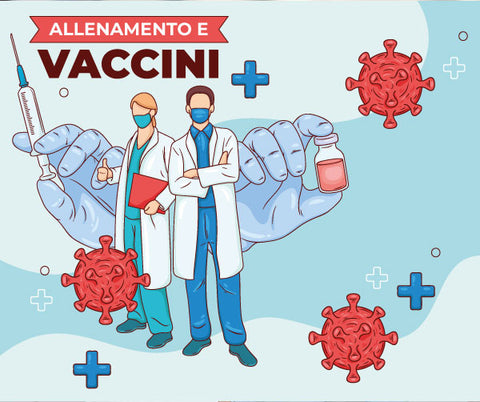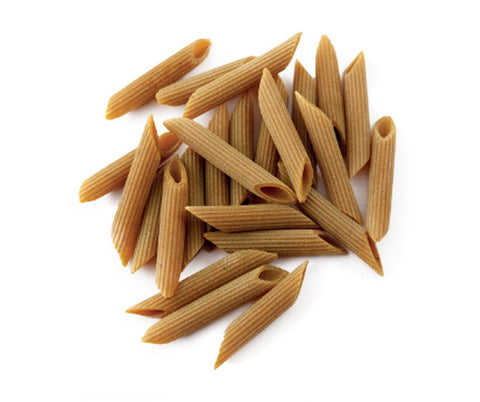Much hope is placed on recently developed vaccines against SARS-Cov-2 virus infection to reduce COVID-19 infections and achieve herd immunity.
This is because we hope to return to a “normal” life in the near future.
However, there are several unresolved questions regarding the actual effectiveness of vaccination in real-life scenarios , especially in the medium and long term, today together we will try to answer the question: is physical activity an aid to vaccination against COVID-19?
This question arises from the potential interindividual variability of induced immune responses (for example: by vaccines) which today becomes a central theme, with numerous factors (modifiable or not) that influence the effectiveness of vaccination.
We can say, without a shadow of a doubt, that lifestyle (and therefore also physical exercise) is one of these factors.
immunological response to vaccinations
Although no specific studies have been conducted with COVID-19 vaccines, experience with previous vaccination programs (particularly influenza) suggests that regular exercise may be an effective strategy to enhance vaccine-induced antibody responses .
For example, young elite athletes have a more pronounced increase in T lymphocytes and neutralizing antibodies after influenza vaccination than non-athletes of the same age.

Physical activity in vaccinated elderly for better antibody response
There is also evidence of a beneficial effect in older adults, specifically a study of highly active older Chinese women (>65 years) who walked an average of 18,509 steps/day in the weeks following vaccination.
These women showed a better immunological response than their less active peers.
Similarly, older adults who had been involved in sports for 17 or more years had a higher antibody response to influenza vaccination than age-matched, untrained individuals.
A 2009 study of people with an average age of 70 years who were previously sedentary and had poor responses to the flu vaccine found that those who engaged in moderate-intensity cardiovascular training (3 sessions per week for up to 60 min per day) showed marked improvements in influenza seroprotection throughout the entire flu season compared with the other group.
Physical activity to increase vaccine safety
We have arrived at the central theme of our article: is physical activity an aid to vaccination against COVID-19?
Ensuring the effectiveness and safety of vaccination against Coronavirus is essential, especially for the most vulnerable segments of the population such as the frail elderly .
While these individuals will likely be among the first to be vaccinated, evidence to date suggests high efficacy of most COVID-19 vaccines only in young adults, with scant evidence available for the two main categories of people targeted for vaccination: frail older adults and adults with multiple comorbidities.
Although there is insufficient evidence at this point to discern whether these individuals may exhibit a lower antibody response to COVID-19 vaccination, previous data suggest a negative influence of age on the efficacy of influenza vaccination (i.e., 11% among individuals aged ≥65 years vs. 52% in those aged 50 to 54 years).
In this regard, the gradual impairment of the immune system with age (called “immunosenescence”) can be attenuated by the stimulation induced by regular physical exercise .
How much physical activity should you do for a better physiological response to the vaccine?
Our advice is to exercise regularly throughout your week, but some research suggests that acute exercise before flu vaccination is preferable if the stimulus is high enough (e.g. total body workout at more than 70% of maximum intensity or local resistance exercise at more than 70% of 1RM, i.e. the maximum load you can lift in a single repetition).

An active lifestyle prevents immunosenescence
In this article, however, we want to go further, because you should know that a physically active lifestyle prevents immunosenescence through various mechanisms.
In fact, several studies have shown that physically active older adults have fewer so-called "senescent" T cells (i.e., exhausted lymphocytes that can lead to the onset of viruses) and more T cells than their sedentary counterparts.
Therefore, attenuation of exercise-induced immunosenescence could help enhance immune responses to vaccination by maintaining the peripheral T cell pool and their ability to respond to novel vaccine antigens.

In conclusion
Today we tried to understand if physical activity is an aid to vaccination against COVID-19.
We can affirm that physical exercise, if performed with the correct intensity, is a valid aid to our immune system and consequently can better modulate the response induced by the vaccine .
However, further research is needed to confirm whether, in addition to regular exercise in the weeks or months leading up to it, acute exercise performed in the hours before COVID-19 vaccination can also improve immune responses.
The specific characteristics (modality, duration and intensity) of regular or acute physical exercise that induce the greatest immunostimulatory effects remain to be identified.
With growing evidence supporting the role of regular exercise in maximizing the efficacy and overall safety of vaccination, and preliminary evidence with a solid physiological basis, we can affirm that acute exercise-induced stress prior to influenza vaccination can enhance antibody responses.
A final point that deserves careful consideration is the current vaccination program against COVID-19.
Indeed, it would be interesting to determine whether a single bout of exercise performed immediately before administering the first dose of vaccine might be beneficial .
In particular, if for example it were found to increase antibody titers to levels comparable to a second dose in untrained subjects .
This could save a large number of vaccine vials so they can be administered to many more people without delay.
Our advice
We would like to end this article with a valuable piece of advice, because in addition to vaccination, the current pandemic has taught us the importance of preventive lifestyle measures .
Indeed, not only social distancing, good hygiene and enforced closures are necessary, but also physical exercise , which is not only safe, but also has a potential preventive role , especially for the most vulnerable groups.
For a complete analysis of the COVID-19 situation, we also suggest you read our article: 5 things that are clear today about COVID-19 .
Sources:
Brain Behav Immun. 2021 Mar 7 doi: 10.1016/j.bbi.2021.03.003



